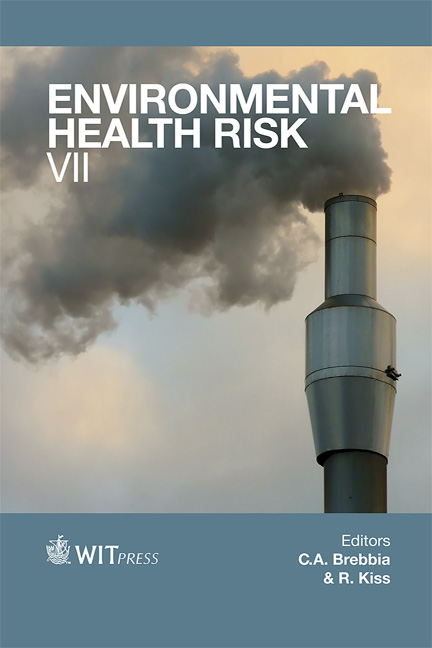The Licensing Of A Laboratory For Manipulating Radionuclides In Brazil
Price
Free (open access)
Transaction
Volume
16
Pages
10
Page Range
25 - 34
Published
2013
Size
53 kb
Paper DOI
10.2495/EHR130031
Copyright
WIT Press
Author(s)
D. M. Bonotto, B. W. Tessari, G. Girello & V. R. Roveratti
Abstract
Radionuclides take a major role in guidelines of environmental agencies/national organizations of countries worldwide. In Brazil, CNEN-Comissão Nacional de Energia Nuclear is responsible for managing all subjects related to nuclear energy in the country. Thus, laboratories employing radionuclides for the development of their activities must submit a \“Radioprotection Plan” to CNEN in order to get an operation license. Such plan must indicate that the laboratory is exempt of risks to the people involved and designed to fit all related environmental aspects. This was the case of LABIDRO-Hydrochemical and Isotopes Laboratory that belongs to IGCE-Geosciences and Exact Sciences Institute from UNESP – the University of the State of São Paulo \“Júlio de Mesquita Filho”, located at Rio Claro city, São Paulo State, Brazil. The total monthly activity of the radionuclides utilized during the laboratorial activities held at LABIDRO corresponds to 0.01 μCi. This paper describes all information provided by LABIDRO in order to get the CNEN license. The LABIDRO plan also showed the expected radioactive waste released when the experiments take place and CNEN decided that it fits the guidelines established by Brazilian legislation. Therefore, LABIDRO received its license for utilizing radionuclides, which is valid until September 2016. Keywords: radionuclides, LABIDRO-Hydrochemical and Isotopes Laboratory, CNEN-Comissão Nacional de Energia Nuclear, licensing, radioactive installation, Brazil.
Keywords
Keywords: radionuclides, LABIDRO-Hydrochemical and Isotopes Laboratory, CNEN-Comissão Nacional de Energia Nuclear, licensing, radioactive installation, Brazil.





